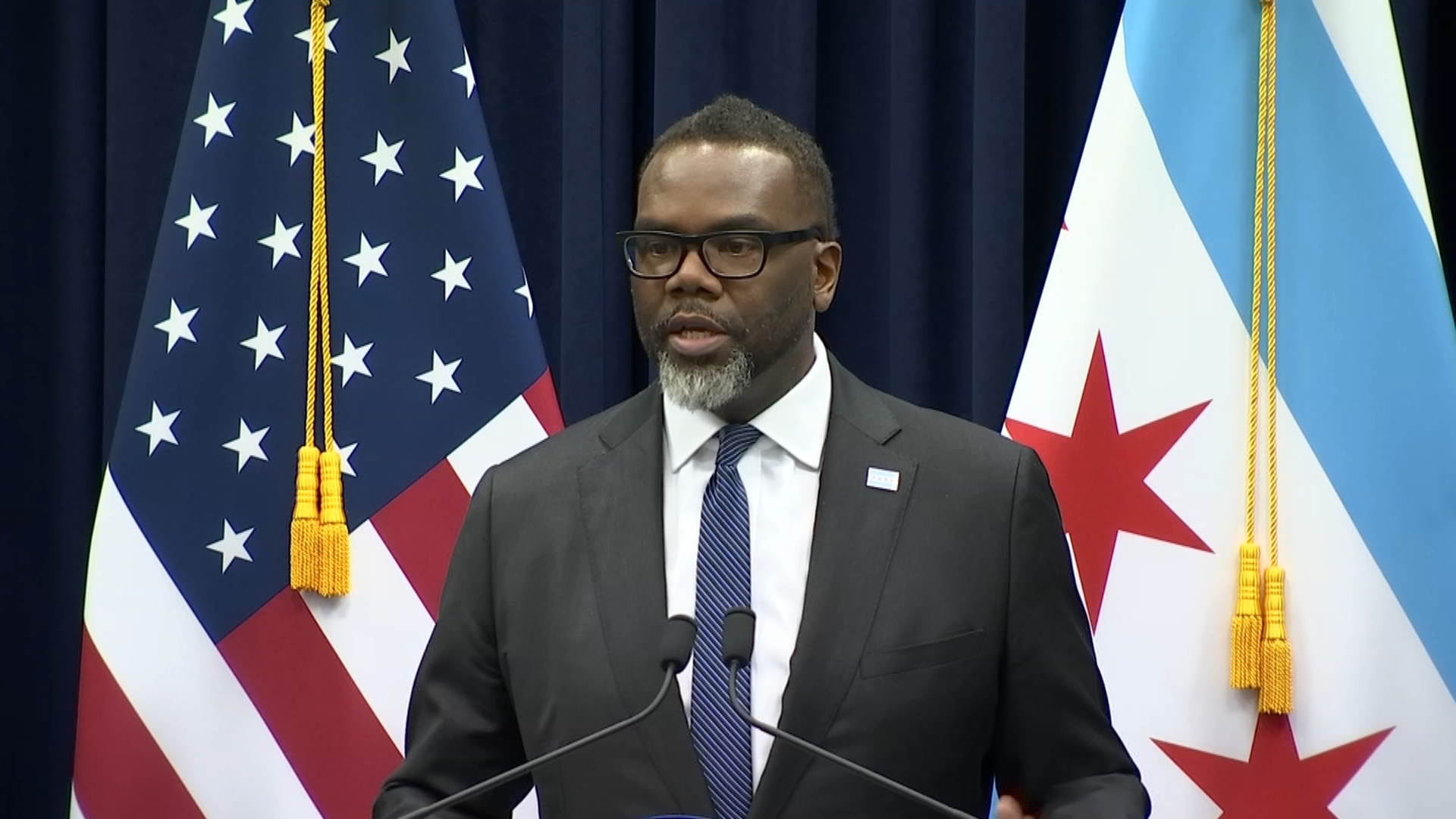Repeat drunk drivers, drug users and even people convicted of battery and weapons violations are serving less than three weeks' total time behind bars under a secret change in policy by Illinois Gov. Pat Quinn's prison system, The Associated Press has learned.
Records obtained and analyzed by the AP show that since September more than 850 inmates have been released weeks earlier than they ordinarily would be. The Corrections Department is saving money by abandoning a policy that requires inmates to serve at least 61 days and awarding them discretionary good-conduct credit immediately upon entering prison.
That means some prisoners have enough good-conduct days to qualify for release almost immediately -- before they've had a chance to demonstrate any conduct at all, good or bad. The inmates are kept at the department's prison processing centers and released after as few as 11 days.
So Jorge Bogas spent just 18 days behind bars for aggravated driving under the influence after he hit two cars, hospitalizing one motorist for weeks, while driving the wrong direction on Interstate 57. Bogas sat five days in Cook County Jail, was transferred to the processing center at Stateville Correctional Center in Joliet and released 13 days later.
James Walker-Bey, sentenced to a year for violating probation for carrying a .25 caliber pistol in Alsip, was confined for just over two weeks -- three days in Cook County and 14 at Stateville prison.
Local
And Antoine Garrett, previously convicted of armed robbery and illegal firearms possession by a felon, got a one-year sentence after Chicago police saw him drop a bag of cocaine on the street as they approached, but spent just 21 days locked up.
"That's outrageous," said DuPage County State's Attorney Joseph Birkett, whose office has convicted 22 people who have been released early since September. "Good-conduct credits are intended to be awarded to those people who demonstrate through their behavior that they merit those credits."
The unpublicized practice is called "MGT Push," for "meritorious good time," according to a memo obtained by the AP.
It is separate from a plan Quinn announced in September to release 1,000 prisoners up to a year early to save $5 million because of the budget crisis. Only 117 had been sent home by last week under that program, Corrections spokeswoman Januari Smith said.
When he announced that release program, Quinn said he was being tougher than the state's early release law required by barring more types of violent criminals from eligibility.
"MGT Push" has included more than 100 people convicted of potentially violent crimes, including aggravated and domestic battery, battering and assaulting police officers, aggravated robbery and reckless firearms discharge, the AP's analysis shows.
That's not counting the prisoners serving time for nonviolent offenses who committed more serious crimes in the past, including murder.
Nine people were released Dec. 3, the same day that Quinn signed a law requiring prison time for gang members caught with guns.
The day before, Corrections sent home 20 others, including a man convicted of domestic battery who was confined for 19 days and a man who had spent a total of 20 days locked up for carrying a concealed weapon, records show.
Smith called it "more efficient" to release the inmates after two or three weeks at the Stateville processing center instead of spending the money to send them to another prison just for a couple of months.
She said it saves on overtime and transportation costs and that inmates must complete classes, such as how to follow parole rules, before departing.
Prosecutors understand the budget crisis but oppose early release.
A spokeswoman for Anita Alvarez, state's attorney for Cook County, which accounts for three-quarters of the inmates who are part of the analysis, said it "could threaten public safety or increase crime."
"When an individual who was supposedly sent to prison shows up less than a month later, what are the people in the community saying, what is the victim thinking?" asked Winnebago County's top prosecutor, Joseph Bruscato.
Quinn spokesman Bob Reed denied in an e-mail that any prisoners are being released early. He did not address the department eliminating its requirement that everyone serve at least 61 days or that good-time credit is awarded under a section in state law entitled "early release."
Here's how someone sentenced to a year in prison could be released after just a week or two:
- The law automatically waives half his sentence, cutting time in prison to just six months.
- The Corrections Department also can grant six months of good-conduct time (based on conduct in prison, not county jail) for all but the most serious offenses. Theoretically, that could reduce time in prison to zero. Corrections maintains that historically, nearly all inmates eligible for good time get the full amount.
In the past, the department had a policy -- unwritten, according to Sandy Funk of the agency's transfer coordinator's office -- of requiring inmates to serve at least 61 days before collecting any of that good-time credit. With that requirement gone, prisoners can be released after department processes them.
The new policy might save money, but law enforcement officials say it also removes the deterrent of a stint in state prison and undermines judges and juries.
"For the politicians to come in and say, 'We can't afford this, so you can go home early,' why do we have a judicial system?" asked Sherman Police Chief Eric Smith, president of the Illinois Association of Chiefs of Police, which opposes the policy.
Corrections said 943 inmates were affected by the policy change in October and November, but exact figures weren't available for September. Later, it said 541 inmates were released in September and October, but official November numbers weren't yet available.
The AP obtained information on approximately 850 already released or scheduled to be by Sunday.
Their average state prison stay was 16 days. Combined with time the inmates spent in county jail prior to that, they averaged 106 days behind bars --47 percent of the sentence the court decreed they should serve.
Charles Fasano, prison monitor for the John Howard Association, said tough-on-crime policies of the past three decades are haunting the state. He supports the early release but challenged lawmakers to confront prison overcrowding caused by long sentences for minor crimes, such as drug possession.
"We want to get everyone off the streets, but we don't have the money," he said. "You can't have it both ways."



